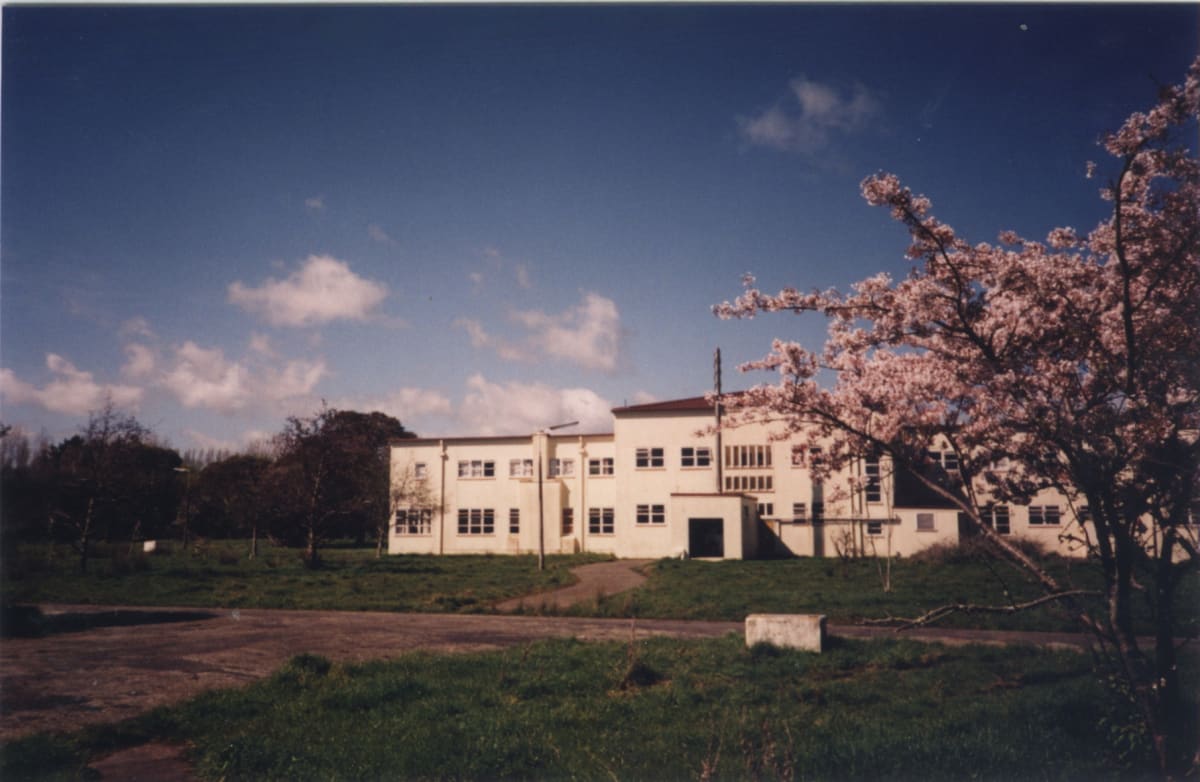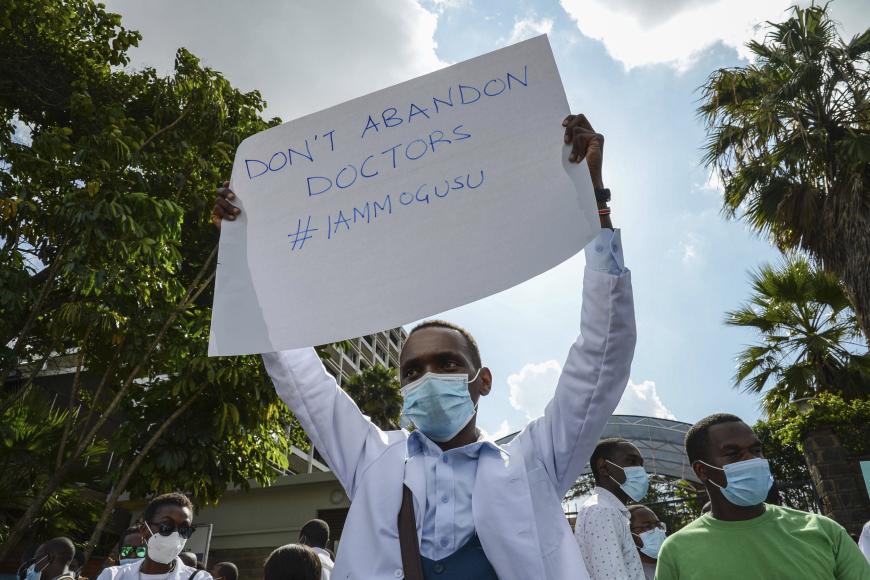The Long, Shameful History of Lake Alice Investigations
News
A police investigation into abuse at Lake Alice has concluded with a prosecution. Is it too little, too late? David Williams reports
Lake Alice survivors have almost never been seen as the priority. A backburner case, maybe. Something to chip away at.
That’s despite evidence emerging of torture; of electric shocks and painful injections used to punish vulnerable children under state care at Lake Alice Hospital’s child and adolescent unit near Whanganui, between 1972 and 1978.
Yesterday, however, there appeared to be a departure from the historical trend.
Police announced an 89-year-old former Lake Alice staff member would be charged with wilful ill-treatment of a child. There was sufficient evidence to charge two other ex-staffers, including the unit’s former head psychiatrist Dr Selwyn Leeks, but police said both were medically unfit to stand trial.
(The Abuse in Care Royal Commission, which held a Lake Alice-specific hearing in June, has warned Leeks’ government-funded lawyer its soon-to-be-published interim report on redress to victims and survivors contains comments “adverse to Dr Leeks”.)
Once again, for some, there’s a sense justice hasn’t been done.
Former Lake Alice patient Leoni McInroe says she’s grateful for an outcome to the police investigation. But the Auckland anaesthetic technician, and mother of four, finds it hard to see past the sadness and anger at the “very obvious and clear obstruction of justice” by the Crown and its various agencies.
McInroe’s $1.5 million court case was settled in 2002, four years after Crown lawyers helped organise, and hush up, Leeks’s secret return to New Zealand for a mediation meeting with her.
She has described her legal battle as “nine gruelling years of emotional battering, abuse and bullying from the Crown”.
Yesterday she says: “It is completely and totally unacceptable that the Crown had full knowledge of the extent of the abuse and torture that had taken place and continued to deliberately obstruct our right to justice to protect themselves.”
She adds: “The harm the Crown has caused is unforgivable.”
Citizens Commission for Human Rights (CCHR), and ACORD, the Auckland Committee on Racism and Discrimination, have advocated on behalf of survivors since the 1970s.
CCHR’s New Zealand director Mike Ferriss says because Leeks hasn’t been charged justice is somewhat “symbolic”. “We can’t turn back the clock and therefore we have to accept what we have now.”
Oliver Sutherland, of ACORD, adds: “For once the survivors have been believed.”
Paul Zentveld spent nearly three years at Lake Alice, arriving in 1973, aged 13. He was “treated” with electric shocks, electroconvulsive therapy (ECT), drugs, and solitary confinement for his apparent bad behaviour.
When he left he promised himself he’d pursue justice against his alleged perpetrators – so yesterday was a good day.
The 61-year-old Auckland fishing skipper says the police decision has been almost 50 years in the making. “I’m feeling on top of the moon but I can’t celebrate because I’m out fishing,” he tells Newsroom. “I didn’t expect it to take this long, that was all.”
This latest police probe, prompted by a landmark decision by the United Nations’ Committee Against Torture two years ago, in a case taken by Zentveld, is just another twist in the 40-plus-year journey for survivors. It has been a bumpy road, littered with the potholes false hopes.
Yes, there was a government apology in 2001 made by Prime Minister Helen Clark, and the government paid millions of dollars to victims to settle lawsuits, including McInroe’s. But accountability was nowhere to be found.
Former Lake Alice residents, failed as children, often found themselves, as adults, fighting for justice against a well-resourced, inflexible system geared more towards protecting itself. The many investigations and inquiries – including two previous probes by police – often ended up fizzling out in disappointment.
No wonder yesterday’s announcement was bitter-sweet.

It’s not just about vindication.
Police finally laying a charge means there’s a chance to reverse a terrible fact: that some survivors of Lake Alice – children physically and mentally abused while in state care – have seen the inside of a jail cell for the crimes they subsequently committed, but the people who visited these terrible acts on them have not.
It need not have been this way.
Evidence and witness statements provided to the Royal Commission allow us to paint a picture of why the children weren’t believed, and why authorities failed to act despite being confronted by deeply disturbing allegations.
Several inquiries in the late 1970s came to nothing, including a police investigation focused on claims an ex-patient was ill-treated through the inappropriate use of the ECT machine.
In December 1977, psychiatrist David McLachlan, a former director of psychiatric services at the Wellington Hospital Board, sent a confidential memo to deputy police commissioner Bob Walton.
The memo, which mounts a staunch defence of Leeks and his methods, has been made public through the Commission.
After three months’ work, McLachlan said he formed a “definite opinion on the whole situation relating to Lake Alice”.
The allegations against Leeks and his staff were unsubstantiated, the memo said. While admitting “unorthodox” methods were used, McLachlan said those methods had precedent, and none reached the threshold of unethical or unprofessional conduct.
In any event, Lake Alice’s care and treatment approach had changed since 1974. “The methods used earlier are no longer applied, and there is now nothing to justify criticism.”
The memo wasn’t a complete whitewash.
McLachlan had concerns patients receiving ECT experienced “preliminary pain and discomfort in the head before the stage of unconsciousness”. This was possible when anaesthetic wasn’t used – something that regularly occurred at Lake Alice. In any case, this “should not occur”, the memo said, putting it down to “faulty technique”.
“There appears to me to be nothing in the evidence before me to indicate that ECT was deliberately used in any unacceptable way.”
(This jars with the testimony of Lake Alice survivors, including Hakeagapuletama Halo, who was sent to Lake Alice in 1975, age 13, who described the shocks as like “being hit by a sledge hammers on the head”. A later police inquiry said: “The number and similar nature of the allegations suggested a systemic issue at Lake Alice.”)
In one case, Leeks decided “as a last resort” to let the victims of “buggary” to participate in aversion therapy using electric shocks. This was bad judgement and very unwise, McLachlan wrote. But because Leeks thought the “newly advocated technique” was appropriate and justified, McLachlan concluded “his motive in using it with intended therapeutic benefit cannot justifiably be censured”.
Perhaps the most illuminating passages of the memo relate to character, firstly of Leeks himself.
Well-regarded by psychiatric colleagues, Leeks was “accepted” as a psychiatrist with special training, interest, and ability in the management and treatment of young people. McLachlan wrote: “Colleagues who know him much better than I do, accept him, as a man who is compassionate, concerned for his patients, and working diligently for their wellbeing.”
For him to undertake the sort of “ill-motivated practices” alleged would be “entirely out of character” for Leeks, the memo said. It also noted the psychiatrist’s heavy workload, suggesting, perhaps, improper acts could be carried out by Leeks’s subordinates since he couldn’t devote enough time to supervision.
On the other side, McLachlan said the children of Lake Alice were “dumped” at the hospital as a “last resort”.
“All had been in alternative therapeutic programmes in other institutions where they failed to derive benefit, all were regarded as hopeless and beyond control, and it is safe to assume that with their antisocial background and outlook, they would readily ‘gang up’ against authority.”
The group was “as tough, therapeutically recalcitrant, and morale-destroying, as could be assembled anywhere”, the memo said. “Only dedicated staff with the highest personal qualities and stability could stand up to the task of caring for them adequately.”
Weeks after McLachlan’s memo was sent, the Commissioner of Police, KB Burnside, announced its seven-month-long investigation found no evidence of criminal misconduct. A Wanganui Chronicle article quoted Burnside as saying an independent medical opinion confirmed there was no basis for laying criminal charges.
Inquiry go-slow
In the early 2000s, after the Clark government’s apology and settlement payments, 34 Lake Alice victims complained to police about receiving shock treatment as punishment.
But the case was low on the list of priorities. It took a year for police to decide the complaints had “substance” and should be thoroughly investigated for “public interest reasons”.
Detective superintendent Larry Reid, who was based at police national headquarters, headed the investigation from March 2003. He retired three years later, without having taken a single evidential witness statement, although he’d received 20-or-so files from the settled class action lawsuit.
There was no sense of urgency, Reid admitted in his statement to the Royal Commission.
“The Lake Alice inquiry was historical and had already been through multiple inquiries. The unit no long existed (so if there had been any criminal behaviour, there were no other adolescents at risk of mistreatment) and Dr Leeks was no longer in New Zealand. I am not sure whether he was still practising by that time or not.”
(Leeks pulled the pin on his career in 2003, on the eve of a disciplinary hearing by the Medical Practitioners Board of Victoria into his role at Lake Alice.)
Superintendent Graham Emery, the national manager of professional standards, sent Reid his Lake Alice file – a jumbled box of statements and correspondence. The instruction was to fit Lake Alice work around “more pressing work”, including a period in which Reid filled in as national crime manager.
Police weren’t the only ones on the go-slow. Crown Law took 10 months to provide an opinion on the viability of criminal charges in the case of Hake Halo, who was subject of a 1977 Commission of Inquiry. (In June, Solicitor-General Una Jagose was mystified as to why it took so long.)
The opinion, signed off by Deputy Solicitor-General Nicola Crutchley, was provided in April 2004. It said there wasn’t sufficient evidence to justify a prosecution, but suggested further investigation be undertaken as “serious questions” had been raised.
No inquiry team was established, rather Reid asked for help “as required”. A listed example was in February 2005 – almost two years after the file was assigned – when Reid asked colleagues to inquire at Births, Deaths and Marriages to track down former employees of Lake Alice’s child and adolescent unit. A month later, Reid asked for help to find ex-staffers from the then Director-General of Health.
Interestingly, Reid’s statement names paedophile rapist John Blackmore, a Lake Alice nurse, who Reid discovered had died, as the “main suspect”. Yet the former detective superintendent maintains the focus of the inquiry was “on the use of ECT as a punishment and if memory serves me correctly there were also allegations of improper use of injections”. Sexual allegations were “on the periphery”.
In March 2005, Reid wrote in a weekly report that his strong view was a direct and unequivocal confession was needed for a prosecution, because, without “corroborative evidence”, the focus shifts to the “credibility of a complainant”.
“The troubled lives of the complainants led to their attention at Lake Alice, many of whom unfortunately went on to have criminal convictions,” Reid wrote in his Commission witness statement. “It would have been unfair and improper to the complainants to put them in that situation without strong supportive corroborating evidence.”
Reid shrugged off criticism the case should have been accorded greater priority. He told the Commission police must deploy resources where they can do the “greatest good”, “and that was to investigate and prosecute current criminal activity”.
“It was clear that there were serious allegations of abuse which required further allegations.” – Malcolm Burgess
Malcolm Burgess, a South Island-based detective superintendent who was temporarily based at national headquarters, took over the Lake Alice investigation until its conclusion in 2010. (He retired six years later.)
His first act was to meet Lake Alice survivor Zentveld, who was extremely upset about the police’s lack of progress, particularly when it came to not charging Leeks. (Zentveld’s evidence includes electrodes being wired to his genitals “as punishment for wetting the bed”.)
“After meeting with Mr Zentveld, it was clear that there were serious allegations of abuse which required further allegations,” Burgess told the Commission. He considered there might be a basis for considering criminal charges under section 195 of the Crimes Act, of wilful ill-treatment of children – the very section police used to charge the 89-year-old, it was announced yesterday.
Burgess recommended an inquiry team be established as a priority. But he was knocked back and told to conduct a preliminary inquiry, “having regard to the historical nature of the allegations and the fact that they had been the subject of various inquiries already”.
That inquiry “conducted on a part-time basis” took three-and-a-half years. “The reality was that more immediate and urgent investigations or police matters had to take priority,” Burgess wrote.
Police interviewed about a dozen ex-staff members, who “presented a starkly contrasting picture of the allegations”. Burgess wrote to Leeks requesting an interview “but acting on legal advice he declined to be interviewed”.
The historical nature of the allegations “posed significant difficulties”, Burgess said.
Medical records were missing and recollections by witnesses, decades-old, were sketchy. Independent evidence supported some accounts but threw doubt on the accuracy of others.
After obtaining expert advice from Professor Garry Walter, University of Sydney’s chair of child and adolescent psychiatry, Burgess thought criminal charges for using unmodified ECT on youngsters could be viable.
However, in December 2009, the police’s southern legal manager Ian McArthur provided an opinion a prosecution “was very unlikely to succeed”, and it wouldn’t be in the public interest to commence proceedings. An independent review by Phillip Hall, an experienced criminal barrister, concurred.
Many potential stumbling blocks were thrown up, including a section of the Mental Health Care Act which, it was thought, would give Leeks the defence that aversion therapy was an appropriate medical treatment.
Burgess wrote: “The medical debate over aversion therapy would have played out at trial and would have made it extremely difficult to establish with certainty what was beyond the bounds of accepted psychiatric treatment in the early 1970s, especially when the practice of psychiatry appeared to have evolved considerably over that period.”
In the face of two legal opinions, the door on the police investigation swung shut. Burgess wrote: “I think that most people would agree that it was completely unacceptable to administer electric shocks to children as a means of modifying behaviour. However, repugnance at Dr Leeks’ actions was not enough in itself to proceed with criminal charges.”
In 2010, police announced Leeks wouldn’t be charged, to howls of disappointment.
That was nine years after retired High Court Judge Sir Rodney Gallen produced his compensation report for the government, describing what happened at Lake Alice as “outrageous in the extreme”. While he didn’t interview Lake Alice staff or independent medical experts, Gallen ended up interviewing more victims than the police did in its second investigation.
A different outcome
It’s not clear why this latest police investigation, under detective superintendent Tom Fitzgerald, has taken a different view to the Burgess inquiry. However, it must be easier for police to say there was sufficient evidence of wrongdoing when, because of the person’s supposed mental state, they’ll never be charged.
Could it be the greater level of evidence? Burgess said police “analysed a total of 41 complaints” in his inquiry. Fitzgerald’s job was made easier by information made available through the Royal Commission. Yesterday, he said police interviewed 63 former Lake Alice patients, as well as former staff, and trawled through more than 46,000 pages of evidence.
In his statement to the Commission, Burgess pushed back against criticism of his investigation by the UN Committee Against Torture.
“The fact that the media and public are interested in the events at Lake Alice is not the same thing as the public interest grounds referred to under the prosecution guidelines,” he wrote. The guidelines require an evaluation of a range of public interest criteria, “but the overriding criterion is likelihood of a successful prosecution”.
But the delays are inescapable. In June, it was Fitzgerald who delivered an apology to Lake Alice survivors for police not giving sufficient priority and resources to investigating their allegations.
“This resulted in unacceptable delays in the investigation. It meant that not all allegations were thoroughly investigated.”
Many will now be reflecting on the twists experienced by Lake Alice survivors ahead of yesterday’s police announcement – not least of whom, Zentveld.
In 2005, mid-investigation, police declared to the NZ Herald there was “no proof of abuse” by Leeks, and therefore no requirement or authority to seek his extradition from Australia.
Zentveld told the paper at the time: “Let them turn us down at the moment but we aren’t going away … Justice will be served one day.”
Yesterday, the Lake Alice survivor told Newsroom: “We haven’t finished. I will be at every trial; I’ll be finishing this off.”
He reels off a quote he created, which was used at the Royal Commission hearing: “As children we were always crying, always watching, waiting for someone to say this. No one did. Why did we have to grow up as adults to fight them back?”
All survivors of Lake Alice feel those words, Zentveld says. “We’ve lived that for 50 years.”





